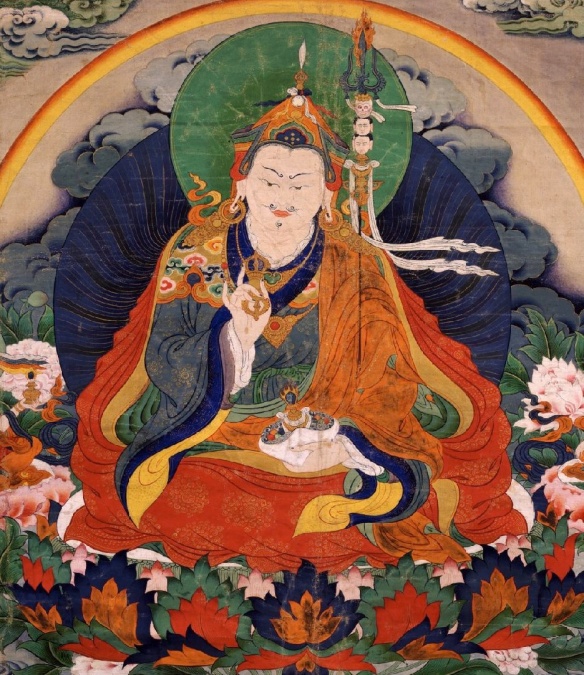
(The One Born From A Lotus, the Precious tantric Buddhist Guru, Padmasambhava)
One of my favourite genres of Tibetan Buddhist literature is so-called ‘words or songs of advice’ texts, known as gtam or zhal gdams in Tibetan. These sorts of texts are great for a number of reasons. For one, they tend to be both pithy and poetic, which makes them a pleasure to read. They often have quite a colloquial flavour, which makes them interesting in terms of style and register. And they are also uniquely practical. While their ethical orientation means that they are focused on ideals and best case-scenarios, the fact that they are intended to be useful as guides means that they are forced to point out faults realistically, to take stock of where their target audience may actually be in their lives or religious practice. After all, the only thing worse than unsolicited advice is advice that has no bearing on the realities of one’s life.
I previously translated and shared a ‘words of advice’ text aimed at ngakpa or non-celibate, tantric vow-holder yogi-householders on this blog. You can read that text by famous 20th century ngakpa Dilgo Khyentse Rinpoche, and some stray thoughts on it here. Today I was taking a read of the much older text of advice for ngakpa on which Dilgo Khyentse Rinpoche based his later commentary: the ‘final words’ or parting testament (zhal chems) of the legendary ON (‘Original Ngakpa’) Padmasambhava (‘The Lotus Born one’) a.k.a. Guru Rinpoche, the ‘Precious Guru’, as found in a biography of this Great Tantric Master who secured the spread of Buddhism in Tibet which was revealed by the tantric visionary saint Nyangral Nyima Ozer in the 12th century. Dilgo Khyentse’s words of advice for ngakpa in the early twentieth century are directly inspired by the testament of the eighth century Padmasambhava as reported in Nyangral Nyima Ozer’s twelfth century revelation, Continue reading

